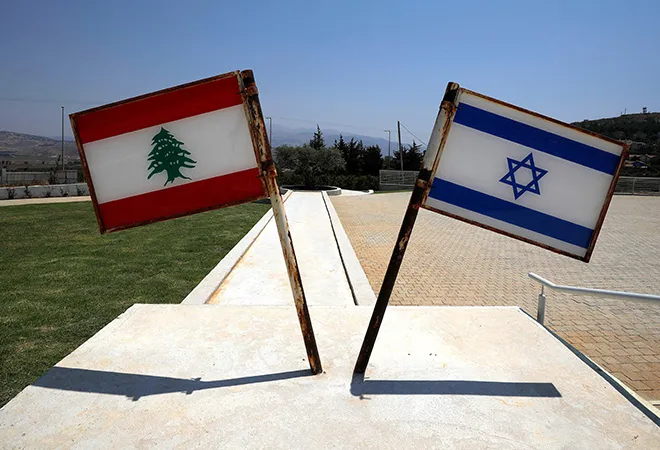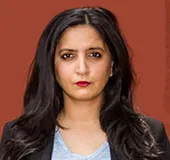
Tensions in one of the most volatile neighbourhoods in the world rose this month as Israel and Hezbollah exchanged fire on the border and continue to be worryingly close to a naval confrontation.
Lebanon and Israel’s border is manned by the UN’s peacekeepers and has been relatively calm since 2014. But
on August 4, as thousands gathered on the streets of Lebanon’s capital to commemorate the one year anniversary of the Beirut port blast, three rockets were fired from Southern Lebanon towards Israel.
No one took responsibility and the local press reported that it could have been the
Palestinian refugees. Israel, however, held Hezbollah responsible and the Israeli press reported that nothing moves in Southern Lebanon without Hezbollah’s knowledge.
Israel struck Lebanon with air strikes, a first since 2014 and said it was in response to more rockets from Lebanon.
Israel responded with heavy artillery fire; the Lebanese army claimed that Israel had fired
92 shells. On August 5, Israel struck Lebanon with air strikes, a
first since 2014 and said it was in response to more rockets from Lebanon. Again, no one came forward to take responsibility. A day later,
Hezbollah fired 20 rockets inside Israel and owned it. It warned Israel of severe retaliation if it did not stop its airstrikes.
The dramatic escalation at the border terrified the Lebanese who have been grappling with a myriad of crises. The fear was that Lebanon teetered on the edge of yet another conflict at a time when its people are starving.
While both sides maintained the rhetoric for a while, neither caused any casualties. Over the last decade, Israel has attacked alleged Iranian assets inside Syria hundreds of times, but it seems to have a different strategy for Lebanon, i.e., weakening Hezbollah from within.
Israel also does not want to attack Lebanon and give Hezbollah and the rest of the flailing political class an excuse as they are challenged by the Lebanese people who seek accountability.
The country has been reeling under a debilitating scarcity of fuel since the bankrupt government lifted subsidies on the essential commodity.
But just as the situation on the border relaxed, Hezbollah Chief Hassan Nasrallah announced that an Iranian fuel tanker was en route to Lebanon to ease the hardship of the Lebanese. The country has been reeling under a debilitating scarcity of fuel since the bankrupt government lifted subsidies on the essential commodity. He warned Israel and the US against stopping the shipment.
“The vessel, from the moment it sails in the coming hours until it enters
waters, will be considered Lebanese territory,” Nasrallah said in televised speech. “To the Americans and Israelis, I say: It’s Lebanese territory.”
The vessel has not yet docked on Lebanon’s shores but if it does, Lebanon runs the risk of being sanctioned by the US. “Iranian vessels will carry additional dangers and sanctions for the Lebanese,” said Lebanon’s Former Prime Minister Saad Hariri.
Moreover, it might embroil Lebanon in an ongoing covert naval war between Iran and Israel.
A few hours after Nasrallah’s announcement America’s Ambassador to Lebanon, Dorothy Shea, told an Arab news network that the US is in talks with Egypt, Jordan, as well as the World Bank to solve Lebanon’s energy crises.
Laury Haytayan, a Lebanese energy expert, said it is a possibility that Iranian crude might go to Syria and be refined there before it is transported in trucks to Lebanon. “But this is all prohibited by sanctions, it’s not that easy, and since Hezbollah is doing it in public, there is a lot of danger in Lebanon, we are in danger of being sanctioned, or being attacked,” Haytayan said.
A few hours after Nasrallah’s announcement America’s Ambassador to Lebanon, Dorothy Shea, told an Arab news network that the US is in talks with Egypt, Jordan, as well as the World Bank to solve Lebanon’s energy crises. “We’re trying to get real, sustainable solutions for Lebanon’s fuel and energy needs,” she said. “I think the Lebanese people deserve importers of fuel to distribute it equitably. And I ask you, can you count on Hezbollah to do that?” she asked rhetorically.
It remains to be seen if and how Israel would respond to the Iranian tanker once it reaches Lebanon or Syria. It is also unclear who exactly will the US sanction if it docks in Syrian waters and is refined in the already sanctioned Baniyas oil refinery. But it is a difficult decision for both Israel and the US to destroy the tanker since it carries fuel for very desperate people in Lebanon. Iran, meanwhile, has said it is happy to send more crude to Lebanon.
The views expressed above belong to the author(s). ORF research and analyses now available on Telegram! Click here to access our curated content — blogs, longforms and interviews.



 Tensions in one of the most volatile neighbourhoods in the world rose this month as Israel and Hezbollah exchanged fire on the border and continue to be worryingly close to a naval confrontation.
Lebanon and Israel’s border is manned by the UN’s peacekeepers and has been relatively calm since 2014. But
Tensions in one of the most volatile neighbourhoods in the world rose this month as Israel and Hezbollah exchanged fire on the border and continue to be worryingly close to a naval confrontation.
Lebanon and Israel’s border is manned by the UN’s peacekeepers and has been relatively calm since 2014. But  PREV
PREV


